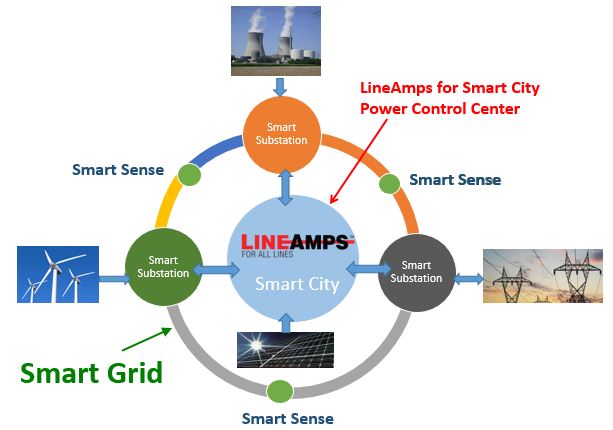Publications
Powerline Ampacity System: Theory, Modeling and Applications
by Anjan K Deb Electrotech Enterprises, Fairfax, Virginia, USA
Electrotech Enterprises is pleased to announce a new book on powerline ampacity systems. While there are many books related to transmission line voltage, this is the first book devoted entirely to line ampacity. As the title of the book suggests, the book not only covers theoretical and practical aspect of overhead conductor thermal rating but goes beyond and addresses the problems and solutions related to line ampacity in the context of a power system as a whole.
Read MoreObject-Oriented Expert System Estimates Line Ampacity
by Anjan K Deb, Electrotech Enterprises, Fairfax, Virginia, USA
In a competitive power supply business environment, line ampacity predictions are required by electric power utilities for economic generation planning, contingency planning, security analysis, and for normal and emergency operation of electric power systems. The line ampacity system featured in this article calculates ampacity from general purpose National Weather Service (NWS) forecasts and does not require additional hardware on power lines. By designing the ampacity expert system with objects and rules, it can be easily implemented in small and large electric companies
Read MoreOptimizing Transmission Path Utilization in Idaho Power
A new line current profile based dynamic line rating system has been implemented at Idaho Power Company by real time exchange of data with Energy Management System and real time weather data from the internet. Increased utilization of transmission critical path is made possible by wide area real time dynamic rating using internet based weather data. Economic analysis shows significant benefit of operating transmission lines at higher ratings by taking advantage of favorable weather conditions during overload conditions. A case study of an internal transmission interface including the Brownlee East path in Idaho Power using the new dynamic line rating system and an associated overload mitigation system is presented. It is shown there is minimum risk of overloading a circuit by increased transmission path utilization under N-1 contingency conditions.
Read More
